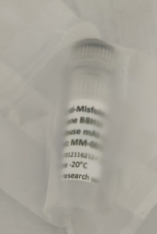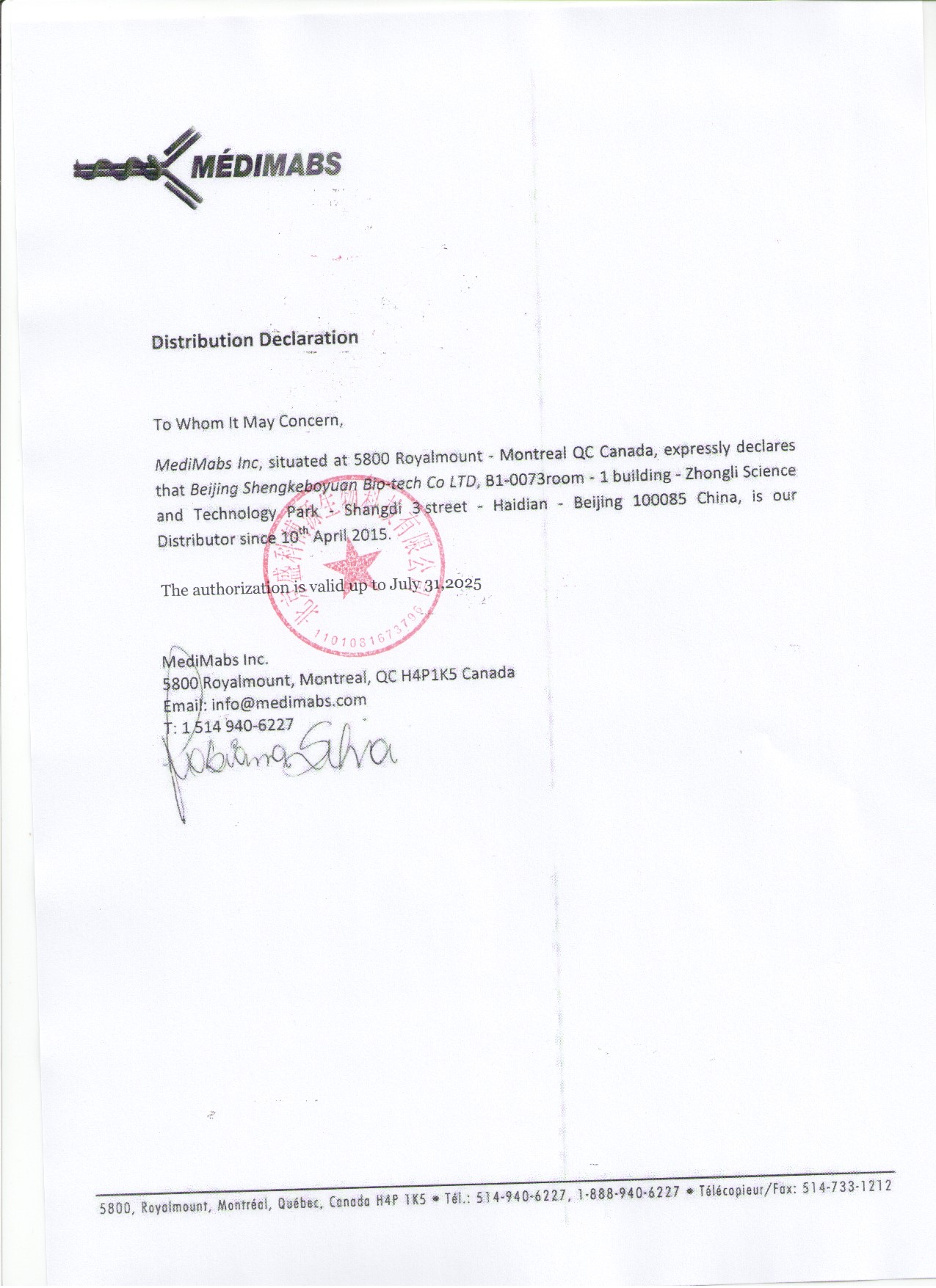 首页>
生物试剂
首页>
生物试剂
商家描述
商家资质信息
产品评价(0)
Target
Proenkephalin-A (N-term)
Target background
Vertebrate endogenous opioid neuropeptides are released by post-translational proteolytic cleavage of precursor proteins. Proenkephalin-A is one of the three opioid neuropeptide precursor molecules of the opioid pentapeptides Met- and Leu-enkephalin, which compete with and mimic the effects of opiate drugs. Upon cleavage, each proenkephalin peptide results in the generation of four copies of Met-enkephalin, two extended copies of Met-enkephalin, and one copy of Leu-enkephalin. Proenkephalin opioid neuropeptide is one of the key neurobiological substrates of addiction disorders implicated in reward, mood regulation, stress response, and motor function.
Target alias
Proenkephalin (PENK), PEA
Immunogen
N-terminal peptide (AA 63-70)
Specificity
The antibody recognizes an epitope in N-terminal (AA 63-70) of Proenkephalin A
Clone ID
---
Preservative
None
Format
Lyophilized serum
Recommend starting dilution
If reconstituted with deionized water in 100 µl: WB 1:1000. Optimal dilution has to be determined by the user.
Limitations
Research Use Only
Storage
Lyophilized antibodies can be kept at 4ºC for up to 3 months and should be kept at -20ºC for long-term storage (2 years). To avoid freeze-thaw cycles, reconstituted antibodies should be aliquoted before freezing for long-term (1 year) storage (-80ºC) or kept at 4ºC for short-term usage (2 months). For maximum recovery of product, centrifuge the original vial prior to removing the cap. Further dilutions can be made with the assay buffer. After the maximum long-term storage period (2 years lyophilized or 1 year reconstituted) antibodies should be tested in your assay with a standard sample to verify if you have noticed any decrease in their efficacy. To limit antibody loss or degradation, BSA (final concentration 1%) and sodium azide (final concentration 0.02%) can be added to the suggested first dilution. It is important to first verify if those preservatives are compatible with your assay.
References
 会员登录
会员登录.getTime()%>)
 购物车()
购物车()

 成功收藏产品
成功收藏产品
